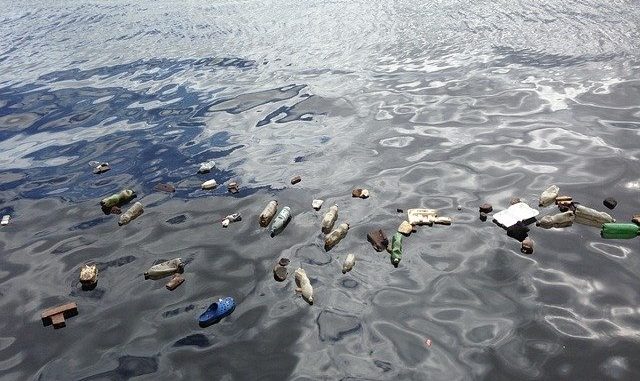
Last weekend 750000 poppies were dropped over the White Cliffs of Dover. It’s claimed these were bio-degradable, but then so are plastic bags, eventually.
I can’t find out what the poppies are made from – everyone’s being deliberately vague – but I guess from that very vagueness they’re not made from poppies, or fish food. The colours used may well linger, and materials that are biodegradable under commercial composting conditions may struggle to biodegrade in the ocean. I realise the poppy is a sacred emblem, that this was a beautiful gesture that made a good many people happy; but why offer tributes to the dead that may endanger the living? That’s what pollution means. It’s not only ugly. It’s deadly.
Balloons are worse, those garish empty sacks of promise, sent heavenwards to commemorate anniversaries and loved ones: invariably they seem to miss heaven and wind up instead in a turtle’s gullet. It only takes one balloon to kill one marine creature. Encouraging more death seems a bizarre tribute to the dead.
Plastic pollution in the ocean is everyone’s problem. Even if you don’t live by the sea, or visit it, or care about fish – I hate fish, personally, the freaky little beasts, and I don’t much care what happens to them – still, one in three fish caught for human consumption now contains plastic, so if you eat fish, you eat plastic. And in that plastic you’ll find chemicals like DDT, linked to endocrine disruption and certain cancers. You kill fish, the fish kill you back, in time, and painfully.
And even if your commitment to continuing to breathe means you don’t eat fish, 70% of oxygen is made by marine creatures, so plastic pollution in the ocean may well impact on your air supply. Cute creatures suffer, the seals and the seabirds, as well as all the slimy disgusting diverse beasts that make up the food chain. Plastic is an equal opportunity killer.
Eight million pieces of plastic pollution find their way into the ocean every day; there’s an average of 5000 items of plastic pollution for each mile of beach, surely of particular concern to the many Thanet folk who rely on tourism for their livelihoods. Local beach cleans log the origins and brands of plastic pollution, with Coca Cola way out in the lead as polluter in chief, hotly followed by Pepsi, Cadbury’s and McDonalds.
Plastic recycling is looking increasingly flawed as a solution. We need to focus on reuse instead. It used to be possible for us to get to work without a single-use throw-away bucket of coffee on the commute. Let’s rediscover ceramic, glass, taking a moment to sit and breathe as we ingest.
You can help by reducing your use of single use plastics, recycling where you can, assisting in beach cleans – either the organised affairs, which are great fun and hugely informative, or stooping to pick up the odd bit when you stroll along the shore. It’s not hopeless. It’s not too late. But we may all need to start thinking more carefully about where our priorities lie.

